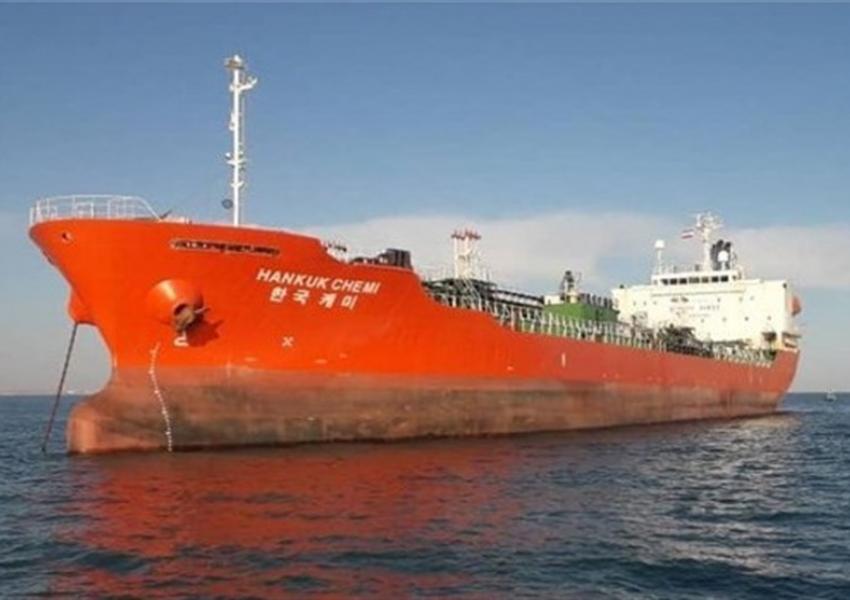
Talks On Korean Impounded Tanker As Iran Demands To Unfreeze Funds
A South Korean government delegation left Seoul for Tehran on Thursday [January 7] to discuss Iran’s seizure of the tanker MT Hankuk Chemi in the Persian Gulf this week. At the same time, a report in Korea said Iran has requested South Korea supply $1 billion of medical equipment paid with Iranian funds frozen in fear of United States sanctions.
The tanker, with 20 crew including five South Koreans, was impounded on January 4 by Iran’s Revolutionary Guard Navy on charges of violating environmental protocols, amid bilateral talks over $7 billion Iranian funds blocked in South Korean banks. Korea was a regular buyer of Iranian crude oil until 2018 when the US threatened third parties with sanctions for buying Tehran’s oil or dealing with Iranian banks.
Iran has demanded South Korea release the funds or allow the purchase of medical and humanitarian supplies specifically exempted from American sanctions. The tanker’s seizure has encouraged speculation that Tehran wants a bargaining chip to force Seoul’s hand.
Leading the Korean delegation, Koh Kyung-sok, director-general of the foreign ministry’s Africa and Middle Eastern section, said he planned to meet his counterpart at the Iranian foreign ministry and “others through various routes if that will help efforts to address the ship’s seizure,” Yonhap News Agency reported Thursday. Yonhap also reported that South Korea’s First Vice Foreign Minister Choi Jong-kun was expected to visit Iran early next week to discuss the tanker and other issues.
Yonhap quoted a diplomatic source that Iran had asked South Korea to use $1 billion of the frozen funds to purchase medical equipment. In 2020, Seoul sent small amounts of medical assistance to Iran but efforts at unblocking more funds were inconclusive. The source said Iran hoped that Choi would “come with a program that will allow Iran to use the money.”
The uncertainty surrounding sanctions means that although the US Treasury denies they target medicines and medical goods, banks are nervous over wire transfers that have to go through the US banking system while Iran is concerned US could seize funds to compensate a multitude of plaintiffs who have won court cases against the Islamic Republic. All transaction must be coordinated with Washington in the atmosphere of the Trump administration’s ‘maximum pressure’ policy against Tehran.
The situation may ease once the Biden administration takes over on January 20 with a declared intention of returning to Iran’s 2015 nuclear agreement, which Trump left in 2018 before imposing stringent sanctions targeting Iran’s oil exports and its banking system. Tehran has also requested the use of $10 million or more from frozen funds to pay for Covid-19 vaccines from the World Health Organization’s Covax facility, a global vaccine distribution mechanism.








